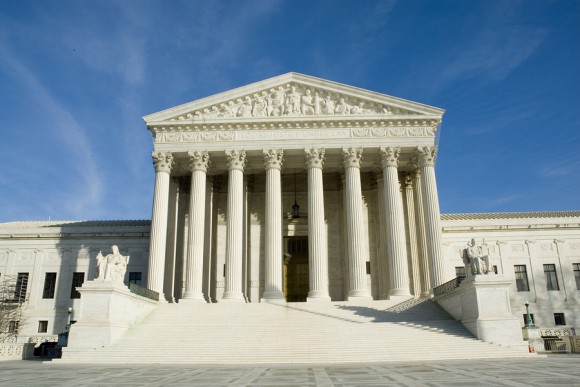The U.S. Supreme Court signaled it won’t take up appeals defending Obamacare during the term that ends in June, rejecting requests by Democratic-led states and the House to put the case on a fast track.
The appeals, filed separately by the House and a California-led group of 20 states plus the District of Columbia, urge the court to issue a definitive ruling upholding Obamacare. A federal appeals court decision last month found a key piece of the original 2010 law unconstitutional and raised questions about the rest of it.
The lawmakers and states asked the justices to consider their bids for review on an expedited basis and then to schedule arguments either for late April or during a special session in May. That would have meant a ruling well before the November election.
The Supreme Court made no comment, rejecting those requests Tuesday in a one-sentence order. The justices still must decide whether to hear the appeals at all. Tuesday’s order means any review wouldn’t take place until the 2020-21 term, which starts in October.
The fast-track request was a long shot, given the Supreme Court’s calendar and its already-packed docket. The court has accepted cases involving abortion, guns, LGBT discrimination, the DACA deferred-deportation program and subpoenas for President Donald Trump’s financial information. All are scheduled to be decided by late June.
Individual Mandate
The Dec. 18 appeals court ruling threw out a provision that, as originally crafted, required people to acquire health insurance or pay a tax penalty. The Supreme Court upheld that so-called individual mandate in 2012, with Chief Justice John Roberts saying it was a legitimate use of Congress’s taxing power.
A Republican-controlled Congress joined with Trump to eliminate the tax penalty in 2017, leaving the mandate without any practical consequences. A group of mostly GOP-led states and the Trump administration are trying to use that change to invalidate the entire Affordable Care Act, including provisions that protect people with pre-existing conditions and expand the Medicaid insurance program for the poor.
The New Orleans-based appeals court didn’t decide whether the rest of the law could stand, instead returning the case to a federal trial judge for closer scrutiny. The Supreme Court appeals attempt to bypass that process, arguing that the nation’s health care system is too important to allow continued uncertainty.
The cases are California v. Texas, 19-840, and U.S. House of Representatives v. Texas, 19-841.
Was this article valuable?
Here are more articles you may enjoy.



 Experian Launches Insurance Marketplace App on ChatGPT
Experian Launches Insurance Marketplace App on ChatGPT  AI Claim Assistant Now Taking Auto Damage Claims Calls at Travelers
AI Claim Assistant Now Taking Auto Damage Claims Calls at Travelers  Preparing for an AI Native Future
Preparing for an AI Native Future  Florida Engineers: Winds Under 110 mph Simply Do Not Damage Concrete Tiles
Florida Engineers: Winds Under 110 mph Simply Do Not Damage Concrete Tiles 

